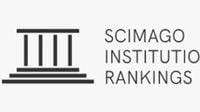Egypt has made significant strides in the global academic landscape, securing the 25th position in the Scimago 2024 rankings, which evaluates countries based on their scientific research output. This ranking encompasses 236 nations, showcasing Egypt's commitment to enhancing its research capabilities and international presence in various scientific fields.
The Scimago ranking, which relies on data from the Scopus database, serves as a vital tool for assessing the volume and impact of research papers published by countries. According to the latest report, Egypt has achieved notable rankings across several scientific disciplines. Specifically, the country ranks 19th in Chemistry, 14th in Earth Sciences, and 25th in Engineering, among other fields.
In detail, Egypt's rankings in various disciplines are as follows: 19th in Chemistry, 14th in Pharmaceutical Sciences, 25th in Engineering, 21st in Energy, 25th in Medicine, 27th in Mathematics, 21st in Agricultural and Biological Sciences, 27th in Physics and Astronomy, 21st in Biochemistry and Genetics, and 19th in Chemical Engineering. These results reflect a balanced performance across a range of scientific areas, indicating a robust research environment.
The Scimago index is released monthly by the Egyptian Observatory for Science, Technology, and Innovation, which was established in February 2014. The observatory aims to bolster the knowledge-based economy by aiding policymakers in developing effective strategies in science, technology, and innovation. It plays a crucial role in addressing future challenges and consolidating data sources related to science and technology in Egypt.
As part of its mission, the observatory serves as the primary source of scientific information for international organizations, including UNESCO and the Organization for Economic Cooperation and Development (OECD). This initiative is pivotal for Egypt as it seeks to enhance its global standing in research and innovation.
In conjunction with these academic achievements, the Ministry of Education has also announced the schedule for the second semester exams for the academic year 2024/2025 across all educational levels. The exams are set to commence on May 21, 2025, for students in the first, second, and third grades.
The Ministry confirmed that the exam period for these grades will extend until May 27, 2025. Additionally, the elementary school exams will also begin on May 21, concluding the transfer student examinations on the morning of May 27. Following this, the preparatory certificate exams are scheduled to start on May 31, 2025.
The examination timetable for the preparatory certificate includes several key dates. On Saturday, May 31, students will take the Algebra exam from 9:00 AM to 11:00 AM, followed by the English language exam from 11:30 AM to 1:30 PM. The following day, June 1, will feature the Arabic language, writing, and dictation exam from 9:00 AM to 11:30 AM, with the last half-hour allocated for dictation, and a sports education session from 12:00 PM to 1:00 PM for sports schools.
On June 2, students will face Social Studies from 9:00 AM to 11:00 AM, and Applied Accounting from 11:30 AM to 12:30 PM. The Science exam is scheduled for June 3 from 9:00 AM to 11:00 AM, followed by Art Education from 11:30 AM to 1:30 PM. Finally, on June 4, the Engineering exam will take place from 9:00 AM to 11:00 AM, and Religious Education from 11:30 AM to 1:00 PM.
These developments in both academic research and educational assessments highlight Egypt's ongoing efforts to improve its educational framework and research output. As the country continues to invest in science and technology, it aims to foster a more informed and innovative society.
In summary, Egypt's impressive ranking in the Scimago index, alongside the structured approach to the upcoming examination schedules, underscores a commitment to educational and research excellence. The integration of these two aspects is vital for the nation's growth and development in the global arena.




